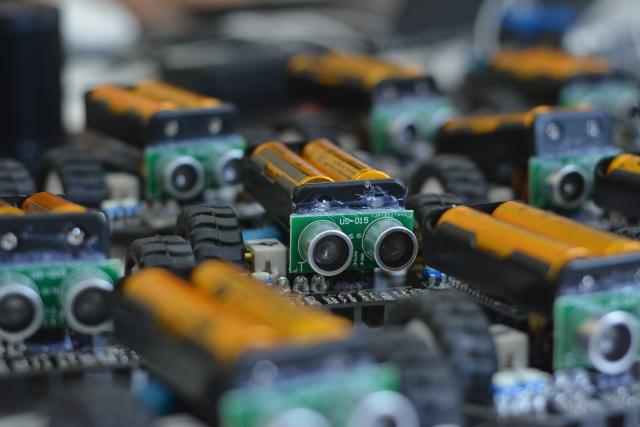Battery Waste: What It Is and How We Can Fix It

Hello everyone, thank you for taking the time to come read this article and stay engaged with the Sustainable Campus family! Let's get right into it!
When we talk about battery waste and how we can address it, we first have to start off by establishing what we can consider battery waste i.e. what happens when we ignore recycling pathways? When batteries are not disposed of properly or recycled, they can expose humans to:
•Lead: causes brain damage, hearing loss, affect growth in children
•Sulfuric Acid: highly corrosive, can cause blindness through eye contact
•Cadmium: more harmful than lead, can damage kidneys and soil
•Contaminated groundwater
When we consider the harmful effects that battery waste can have on our society, we then begin to consider how can we fix this?
That's where battery recycling comes in! Battery recycling is a recycling activity that aims to reduce the number of batteries being disposed of as municipal solid waste (think of your familiar curbside garbage bin). Batteries contain numerous heavy metals (lithium) and toxic chemicals (sulfuric acid) and disposing of them by the same process as regular trash has raised concerns over soil contamination and water pollution.
So, when we talk about WHERE we can recycle, we must go beyond the traditional Blue Bin or labeled box where we recycle our glass, plastic, and paper. Batteries are a little different because they are such a unique product that they need their own recycling pathway.
Batteries can be taken to an electronics store like Best Buy or Home Depot for example, but sometimes for students that don't have off-campus access in a feasible manner, getting to these places can be quite the challenge. Luckily for us, the FSU Bookstore also accepts batteries and takes them to larger electronics chains for us!
If you would like more information on how this process works and the journey of a recycled battery, feel free to visit this link for some great diagrams and further reading. You can also visit the general website, call2recycle.org for more info on general recycling techniques when it comes to electronics and beyond!
The good news is there's already significant progress happening in terms of recycling batteries around the world. In Canada, we've seen that since 2013, recycling efforts for batteries specifically has gone up by 67%! It's a great metric, but of course it's only the beginning of our efforts. Improving upon our initiatives is tough, but most certainly possible.
Last but not least, let's talk about this "Battery Buckets" concept which works great for students here at FSU. Speaking from experience, performing a Battery Bucket initiative is possible, but it may need to start off small. I personally began my Battery Bucket journey out of Wildwood Hall 2518 in Fall Semester of 2018. I asked my floor to drop by any "dead" batteries to my dorm room, and made a little sign on my door so that they knew my door was the right place to go to! Eventually, I asked the housing staff if I could put a small bucket at the front desk of Wildwood North and came by every few weeks to dispose of the batteries at the FSU Bookstore myself. If you've got any questions on the process of just want some general "stories" from the year that I did this, feel free to ask or email me at gms18c@my.fsu.edu.
Thanks for reading! I hope I've "sparked" a few ideas for you to limit battery waste!
